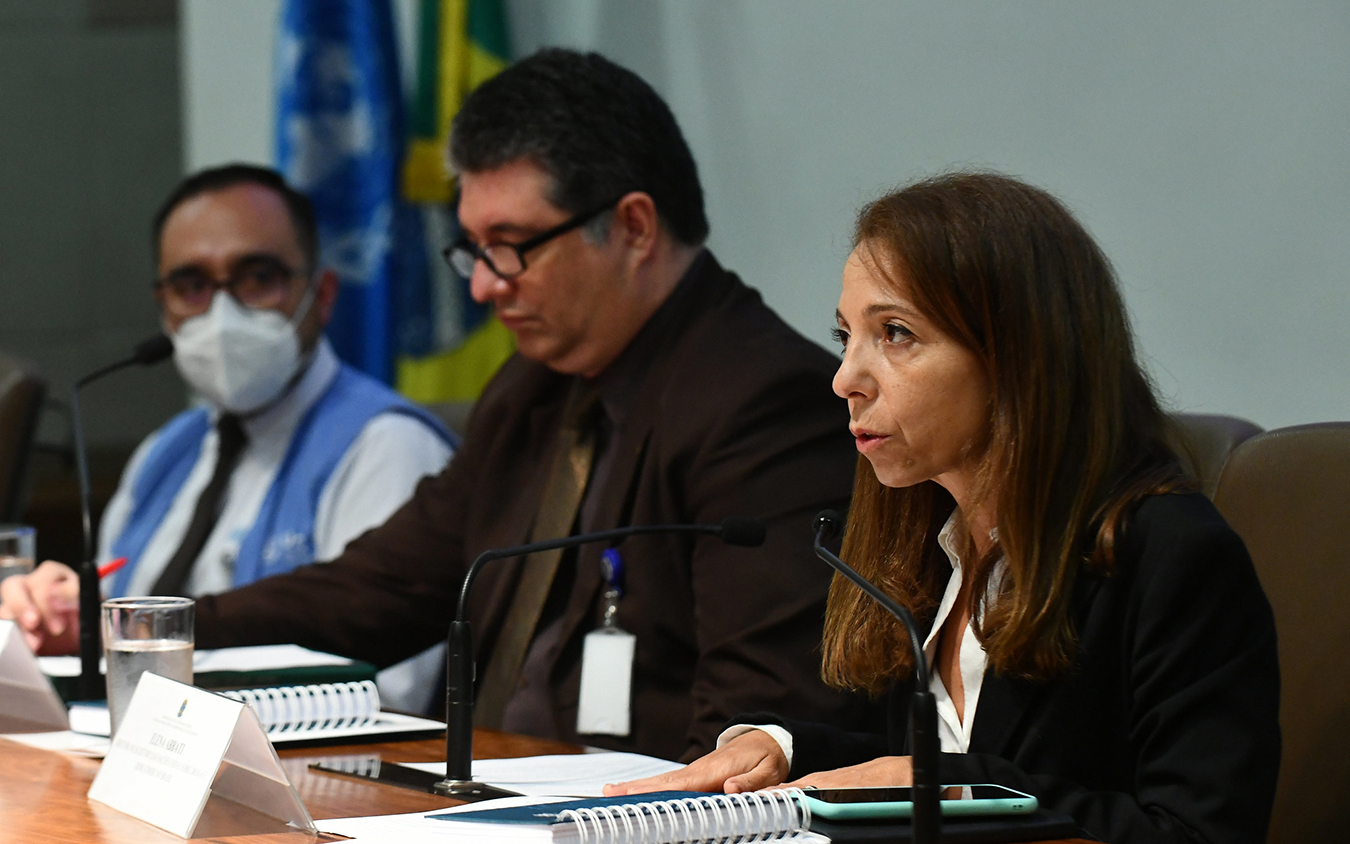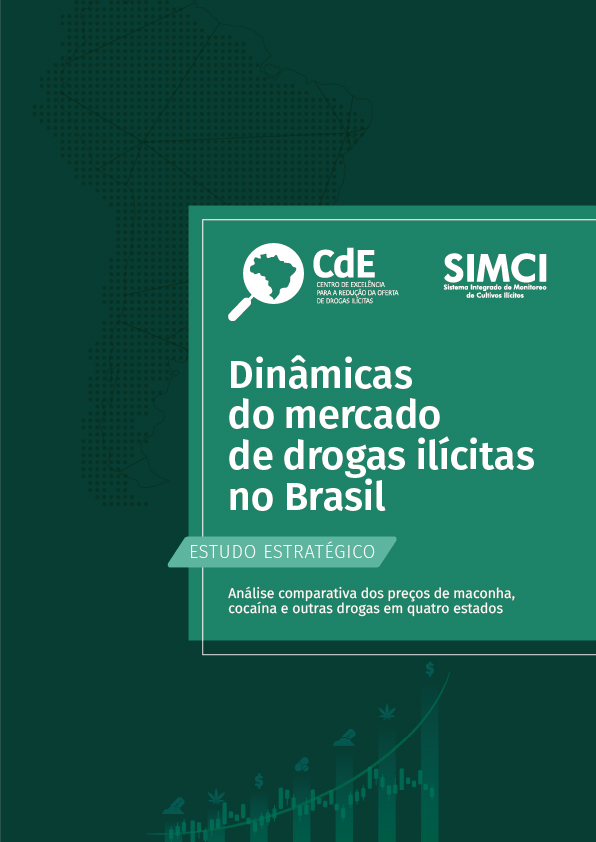
Brasília, 13 December 2022 - The study "Dynamics of the Illicit Drug Market in Brazil" presents an overview of the drug market in the country and how the prices of cannabis and cocaine behave, comparing the states of São Paulo, Paraná, Pernambuco, and Mato Grosso. The publication has just been launched by UNODC Brazil, in the framework of the Centre of Excellence for Drug Supply Reduction (CdE).
The initiative is the result of an unprecedented monitoring project of this market, developed through a partnership between the CdE and the Integrated Monitoring System for Illicit Crops of the United Nations Regional Office on Drugs and Crime for the Andean Countries and Southern Cone (SIMCI - UNODC/Colombia), and in cooperation/collaboration with Brazilian public security institutions.
From May to August 2022, data were collected in four Brazilian states: São Paulo, Paraná, Pernambuco, and Mato Grosso. Thereby, some aspects could be identified, such as drug destination, place where it was sold, paymentform, type of market, quantity sold and purchased,packaging, and the goods value. The stages also included workshops and training in the four participating states.
During the launch event, the SENAD director of Public Policy and Institutional Articulation, Marcelo de Oliveira Andrade, highlighted the collaboration of state institutions in structuring the study. "There is not always standardization and integration of data collected and information produced, so this coordinated and joint effort is fundamental in the fight against trafficking."
Complex market - As a threat to the security of states, the stability of institutions and the sustainable development, the dynamics of the illicit drugs market influences, and impacts mainly the most socially vulnerable populations and sectors such as economy, public health, and environment. By highlighting the complexity and resilience of this market, the UNODC Brazil representative, Elena Abbati, stressed the importance of "addressing crime and illicit drug trafficking in a broad and interconnected way".
"We recognize the importance of multidimensional responses that include the strengthening of specialized skills, cooperation between agencies, as well as cross-border cooperation," said the UNODC Brazil representative, highlighting the joint work done with UNODC Colombia. The study used national and international references and adapted a methodology developed more than 20 years ago, which was improved from the Colombian experiences.
"In fact, we need to think of integrated strategies that point to sustainable results, with a collection of qualified information that increasingly allows the development of public policies for the reduction and prevention of violence, aspects that are in total alignment with the United Nations Agenda 2030," reinforced Carlos Arboleda, UNDP's deputy resident representative in Brazil.

New approach - The result of the work was an innovative look at the illicit drug market, revealing that various aspects of drug production and trafficking can influence criminal dynamics.
During the launch event, the study was presented by the CdE coordinator, Gabriel Andreuccetti, and the Centre's expert in Asset Management and Financial Intelligence, Claudio Monteiro. To introduce the monitoring system of the drug market created by Colombia, in contrast to the work done in collaboration with the CdE, there were the SIMCI coordinator, German Andrés Clavijo; theprogramme officer, Hector Hernando Bernal Contreras; and the SIMCI's thematic advisor with emphasis on economic and social mediation, Iván Ernesto Piraquive López.
"The most important thing is that the system has sustainability and offers content and analysis to other institutions, so that they can design their own strategies to combat drug trafficking, also contributing to the creation of efficient policies against the problem," highlighted Contreras.
Among the factors that contribute to the increase in drug prices are the risks associated with each of the stages of the process, such as conflicts in the production zones, customs controls, and police action. The presence of criminal organizations in the territories is determinant: the study points out that both disputes between different groups, as well as the hegemony of a single organization, can influence price variation.
In relation to the price of cocaine base, for example, it was proved that the prices in Brazil increase as the merchandise moves away from the drug producing countries.
This variation also happens according to the purity of the drugs. The trend is that the lower the price, the more adulterated the substances are.
The average wholesale price of a kilogram of marijuana, for example, starts at R$900 in São Paulo, rising to R$3,000 in Paraná. The average wholesale price of a kilogram of cocaine hydrochloride ranges from R$13,700 in São Paulo to R$23,800 in Mato Grosso.
The launch was attended by researchers, public managers, police officers, and also by representatives of the states participating in the study: the director of the State Department of Prevention and Repression of Drug Trafficking of the Sao Paulo Civil Police, Ronaldo Augusto Sayeg; the police chief of the Specialized Police Department for Repression of Narcotics of the Mato Grosso Civil Judiciary Police, Juliana Palhares; the civil police officer from Paraná, Rafael Pires; and the military police officer from Pernambuco, Major Daniel Augusto da Silva.
CdE - the result of a partnership among SENAD/MJSP, UNDP and UNODC.